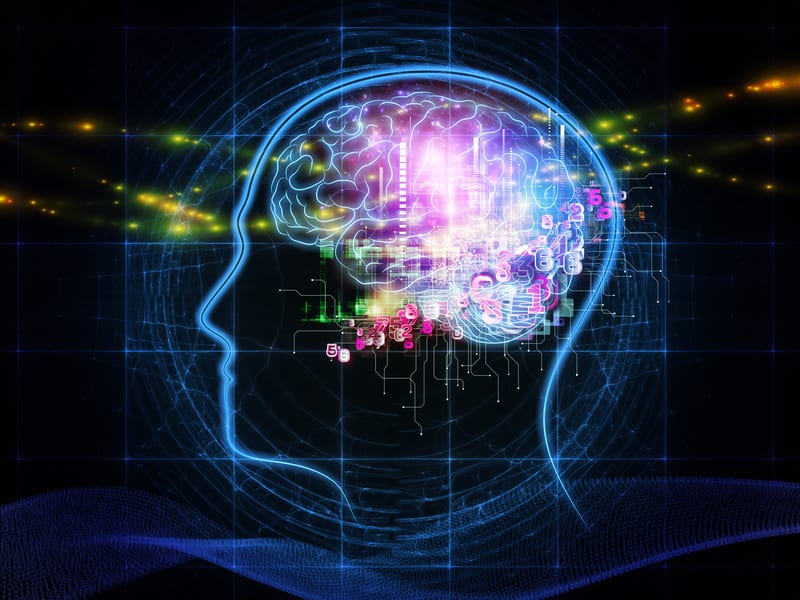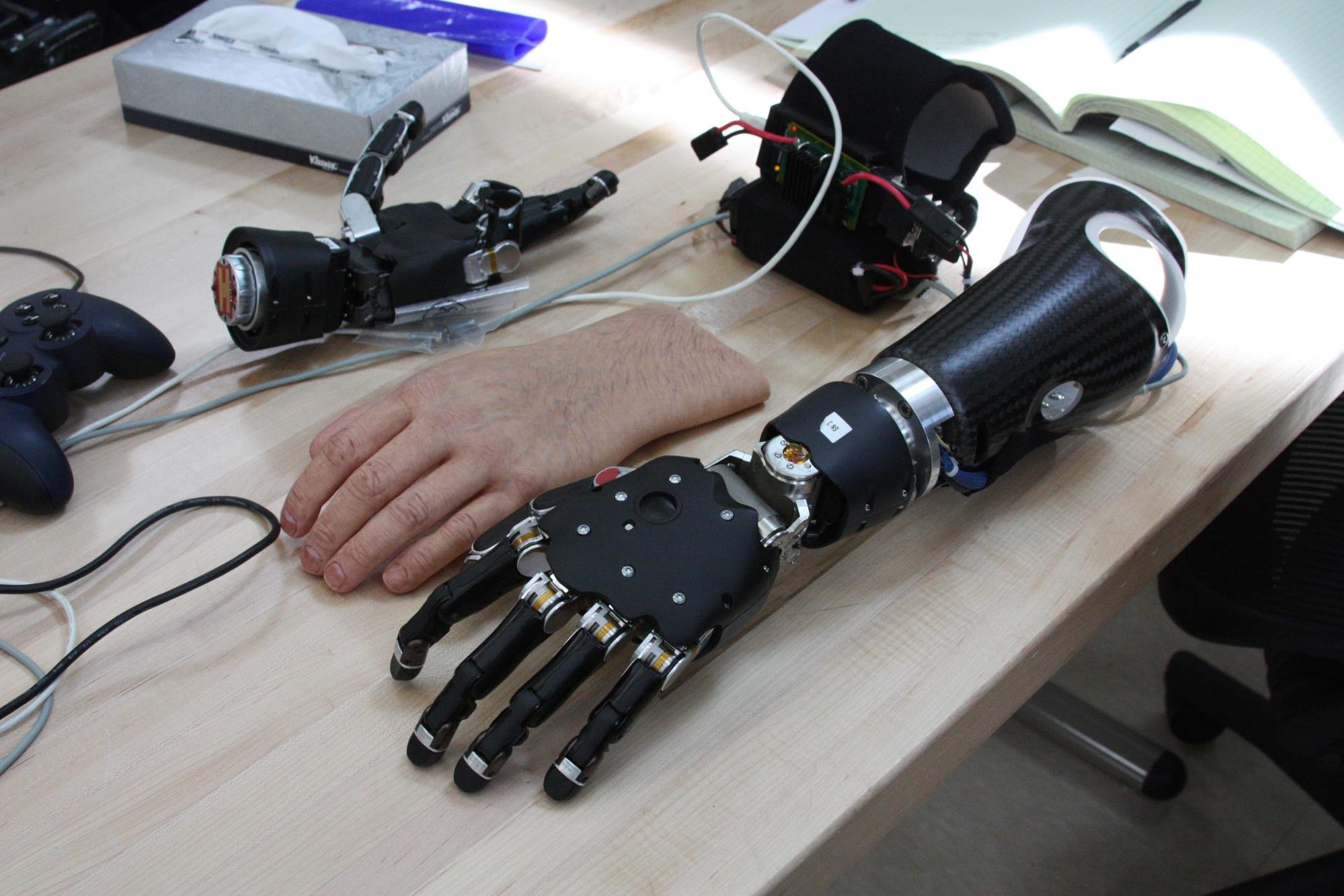by: Jacqueline Friel, Athens Science Café
“I think the brain is like a program in the mind, so it’s theoretically possible to copy the brain onto a computer and so provide a form of life after death†– Stephen Hawking

Admit it, you've thought about living forever. However, did you ever imagine it would be through a computer? Well, science fiction has.
Recent movies like Transcendence and Self/Less have their characters digitize their brains, uploading them into a computer or going farther and transferring their consciousness to a younger body, allowing life beyond frailing biological limitations.
‘‘Backing up the brain†or “mind transfer†aren't new ideas in sci-fi entertainment, but how realistic is this form of immortality? Simply put, could people alive today be able to transfer their consciousness to computer or another person?
Our Brain – How it works
Everything that makes us, “usâ€, is the result of what happens inside our skulls. So how could we possibly upload something so abstract and complicated into a computer?To understand this, we first need to know how our brain works.
Though regarded as your command center, behind the curtain, your brain runs on roughly 100 billion neurons, all inter-connected by trillions of synapses (/ˈsinˌaps/). Much like an over zealous facebooker, a single neuron can connect with up to 1,000 others! But unlike social media, neuronal connections translate to functionality.
Neurons are highly sensitive and conductive cells, releasing chemical or electrical signals to the others they connect with. These signals can either be “excitatory†and cause their neighbors to fire or “inhibitory†causing their neighbors to be silenced. Like a large game of redlight greenlight, this electrochemical interaction between your neurons can quickly scale up – allowing everything from basic sensory interactions to complex emotional reactions (looking at you Marley and Me!)
Current Biotechnology
Though we are still a few years away from understanding exactly what conscious thought is on a cellular level, there are continuous and exponential advances in neuroscience biotechnology all trying to recreate what happens between our neurons.
Machine artificial intelligence is at the forefront of this, and research experts are developing machines capable of reasoning and learning by mimicking the cognitive thought process. These machines will be programmed with large data sets on human behavior, and will analyze environments through their camera lens.

Johns Hopkins Applied Physics Laboratory Source
Closer to completion, researchers at Brown University are developing a wireless device attached to the head that transmits radio thought commands to prosthetic limbs or automated wheelchairs.
The device uses a brain implant to monitor neuronal activity and collect patterns associated with limb movement so that a person can move their prosthetic limbs with just a thought, giving hope to anyone with a musculoskeletal disorder or severe injury.
These advances started in the realm of science fiction and give credence to the notion that we will eventually be able to recreate biological brain activity with non-biological materials.
Immortality — Possible or Just Science Fiction?
For all its sci-fi glory, I think immortality by uploading the human mind to a computer is within the realm of possibilities.
Obviously, the idea of digital preservation is still just a theoretical concept. However, with our rapid advancements in neuroscience paralleled with our leaping developments in biotechnology, it doesn't seem too far fetched that we will some day be able to download our brains quicker than the latest Candy Crush update.
Dr. Marvin Minsky, a pioneer in artificial intelligence at MIT, says that immortal minds are just a matter of time. “At some point, once we understand how brains work, we should be able to make functional copies out of other materials†he said in an interview for the 2045 initiative.
At the end of the day, computers are just a complex network of electrical circuits. Substitute neurons for circuits and our brains are the bigger, more complex biological equivalent. Add the fact that we have made exponential computing progress in the last few decades, maybe in the next 30 years robotic humans won't be limited to science fiction.
Ethical Dilemma?
So fast forward to 2045. Hoverboards have finally been invented, the Arizona Coyotes at long last hold the Stanley Cup, and Minsky is right about brain uploads being a reality.
Now the question arises—would human consciousness survive the switch to a completely digital format? Would our personality, beliefs, goals, and what make us fundamentally human remain intact? Or would we try to conquer the world and eliminate any remaining humans like in the Avengers: Age of Ultron? Plus, to take a page from every robot science fiction novel—what about ethical issues?
Would this conscious machine be human? Would they have civil freedoms—a right to life, liberty, and the pursuit of batteries? Luckily for us, we've got decades to develop our bionic constitution.
About the Author
 Jacqueline Friel just received her Master's in Biology from Arizona State University, but more importantly she received a B.S. in Molecular and Cellular Biology from the far superior University of Arizona. She is currently studying the role of the immune system in lung cancer at the Norton Thoracic Institute. Besides an unusual obsession with her dogs, Sadie and Tucker, she has a passion for science education, and inspiring future scientists to develop critical and creative thinking. She loves to hike, play sports, and of course, critique the plausibility of sci-fi movies! Jacqueline Friel just received her Master's in Biology from Arizona State University, but more importantly she received a B.S. in Molecular and Cellular Biology from the far superior University of Arizona. She is currently studying the role of the immune system in lung cancer at the Norton Thoracic Institute. Besides an unusual obsession with her dogs, Sadie and Tucker, she has a passion for science education, and inspiring future scientists to develop critical and creative thinking. She loves to hike, play sports, and of course, critique the plausibility of sci-fi movies! |
Photographer credits:
- Abstract design of head to highlight elements of intelligence photograph – Saad Farugue healthblog
- U.S Navy Photo by Sarah Fortney – MPL
References Cited
- Meredith Bennet-Smith, “Stephen Hawking: Brains Could Be Copied To Computers To Allow Life After Death†The Huffington Post, 09/24/2013.
- Office of Communications and Public Liaison National Institute of Neurological Disorders and Stroke at the National Institutes of Health Bethesda, Brain Basics: Know your Brain. Publication No. 01 3440a U.S. Department of Health and Human Services Public Health Service October 2012.
- Annette Jeneson and Larry R. Squire. Working memory, long-term memory, and medial temporal lobe function. Learning and Memory. 19: 15-25. 2012
- Alan Baddeley, “Working Memory: Theories, Models, and Controversies†Annual Review of Psychology, Vol. 63: 1 -29. January 2012
- Global Future 2045 International Congress. http://gf2045.com/
- Richard E. Albright, “What can past technology forecasts tell us about the future?â€, Technological Forecasting and Social Change, Volume 69, Issue 5, June 2002, Pages 443-464.
- Meghan Neal “DARPA Is Developing an Intelligent Machine That Can Think on Its Feet†Motherboard. 2013.
- Jerry J. Shih,a,Dean J. Krusienski,b and Jonathan R. Wolpawc “Brain-Computer Interfaces in Medicine†Mayo Clinic Proceedings. 2012 Mar; 87(3): 268–279.
- http://bebionic.com/
About the Author
- athenssciencecafehttps://athensscienceobserver.com/author/athenssciencecafe/April 17, 2020
- athenssciencecafehttps://athensscienceobserver.com/author/athenssciencecafe/April 12, 2020
- athenssciencecafehttps://athensscienceobserver.com/author/athenssciencecafe/April 3, 2020
- athenssciencecafehttps://athensscienceobserver.com/author/athenssciencecafe/March 30, 2020







